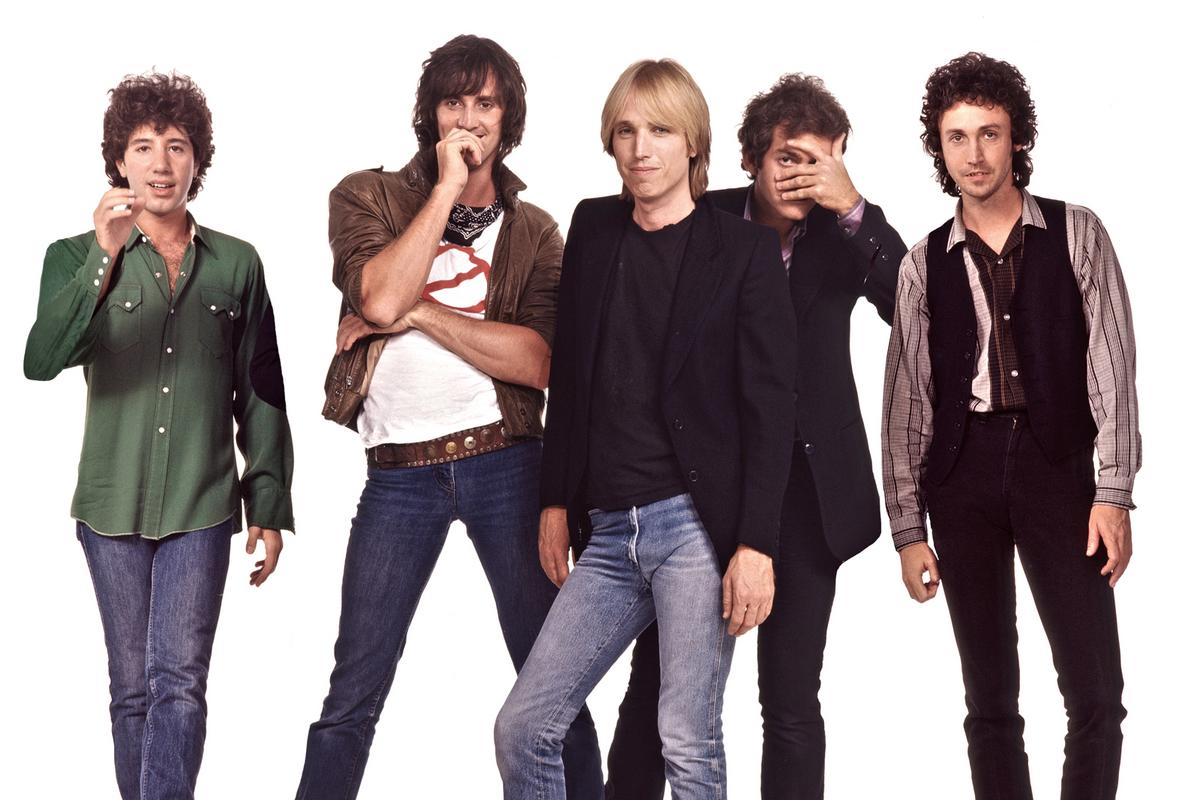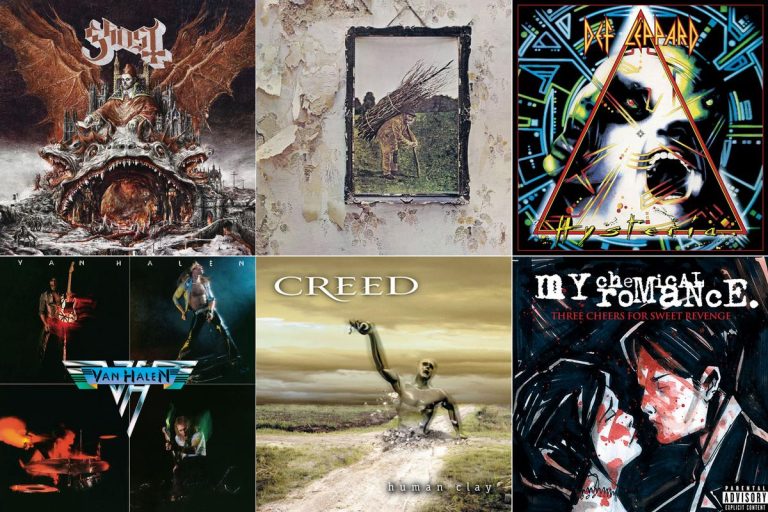Tom Petty hosted a fantastic radio show for years called Buried Treasure and we’re learning now as fans, the late singer-songwriter also had plenty of undiscovered gems in his own catalog.
1982’s Long After Dark is in that category, an album which arrived on the heels of the previous year’s Hard Promises. It was arguably the third record in what was ultimately an impressive trilogy of work from Tom Petty and the Heartbreakers between 1979 and 1982.
“[Long After Dark] feels very prescient for this moment. It feels like it was written at a very big soulless moment of uncertainty,” Adria Petty tells UCR now. “In a lot of ways, we thought it was fun to dive in here and look at how they were dealing with that moment. Looking at the archives and all of it, it’s like the medicine that Tom left behind for us.
The first chapter in that cycle, 1979’s Damn the Torpedoes, followed a protracted legal battle, which left Petty and the members of the group frustrated and disillusioned. But if anything, the turmoil just strengthened their resolve.
The album’s title fit their general credo in that moment, borrowing from the famous quote, “Damn the torpedoes…full speed ahead!” Two albums later, Long After Dark found Tom and the Heartbreakers still loaded for bear — and the recent expanded reissue of Long After Dark offers ample proof. Tracks like the shimmering “Never Been You” and “Don’t Make Me Walk the Line” are just a couple of highlights on the second disc, which revisits a bevy of previously unavailable material that finally has been sprung from the vault.
It’s a good year to be a Petty fan. In addition to the Long After Dark expansion, fans can now access every episode of the previously mentioned Buried Treasure radio show via Petty’s newly relaunched fan club, which now offers free membership. They’re promising an ongoing wave of exclusive content from the archives as well as advance notice and special surprises. One of those surprises arrived with the announcement of the upcoming Live in Edinburgh 1982 official bootleg, which was released and quickly sold out.
During a recent conversation, Adria Petty and Heartbreakers keyboardist Benmont Tench discussed Long After Dark — and Petty offered a glimpse at what’s ahead for fans to look forward to.
As a starting point, how do you look back on Long After Dark now?
Benmont Tench: Long After Dark, I remember that Ron Blair did his last track with us, “Between Two Worlds,” which was one of my favorite things we ever did. Howie Epstein [joined the band], so I remember having Howie there. I loved Howie from the first second….I loved Ron too, but I loved Howie from the first second. We became very close. We were [also] in a different studio. We weren’t in Sound City, we were at the Record Plant. That changed things up and brought in a slightly different vibe.
All of the records were a really good experience. None of them were not a really good experience. Sometimes, as with the legal interruptions for Damn the Torpedoes, they were frustrating. I don’t remember any such frustrations with Long After Dark. It was traditional back then, they’re going to get rid of Stan [Lynch], he’ll be gone for a week, we’re going to get no tracks, no matter how great the other drummer is they bring in. He’s going to come back and we’re going to get two tracks the day he comes back and everything’s fine. [Laughs] So, that happened on that record too. But apart from that, it was a really happy time.
Adria Petty: Look, to me, Tom Petty’s just my dad. He’s a normal dude. But when you look at [him] and the band as a musical entity that created music for 40 years on their own terms, swimming upstream against culture, holding some sort of the tenant of what was cool and what was important to study and interpret as a band and a group, this to me, is like, the band record. It’s not just them trying to make a hit record with Jimmy Iovine. This is this band that has so much grit. They have so much staying power. They’ve been playing like a locomotive for seven years and they’re just in this flow.
Every record is a revelation. I think in the case of this record, there was more of a revelation there maybe than we thought, in terms of the importance of where the band was at and where the harmonies were going. Where Tom was going acoustically, which I think Cameron really succinctly addresses that in the extras for Heartbreakers Beach Party. This is a period of time where Tom was recording acoustic music — really important acoustic music with “Keeping Me Alive,” “Turning Point” and things like that. Looking at the record, knowing that it had that duality, the other roots, what they were calling a “too country” side to it, it’s interesting.
READ MORE: The Gift Tom Petty Gave to Cameron Crowe
It’s really great hearing the extra material on this new expanded edition of Long After Dark.
Tench: I loved having French TV come in and the performances that they captured. I love that once again, we have Phil Jones playing percussion live with us. Everything that Stan Lynch and Phil Jones [did] as a team together was something really, really special. They’re very special on their own. Jones played drums on Full Moon Fever, but as a percussion drum team, they were so much of a joy to play with.
Tom kept on bringing in really good songs as always. Sometimes, he’d bring in demos, more so than he’d done before. We could play fast and loose with them — except on a few songs, like “A Wasted Life,” where he would have played something specific on the demo. Often, it would be very random and he’d say, “I want you to play this.” I’d be like, “You played that off the top of your head. It’s completely random. How am I going to copy that?” He’d say, “You can do it.” And I did. He would push me out of my comfort zone like that. He brought in so many good songs. That’s why we have so much bonus material. I believe that for him and Jimmy and Mike to figure out what belonged on the record and made it a complete [album], I think it was probably pretty daunting, because some of the songs that didn’t wind up on the record, to me, are some of his best and some of our best.
Petty: Tom was a very disciplined songwriter and he was very disciplined about being a band leader too — rehearsing his band, playing with his band — and they were prolific. I mean, they really were. They were aiming for a very high bar and most of the time they hit it when their lives didn’t get in the way. I think for dad and the band in particular, this is a really nice moment. Because Mike gets to go back and see how great “Finding Out” is, “Between Two Worlds,” “You Got Lucky” and really kind of take some credit for innovating in that way at the time. “Straight Into Darkness” [is another example]. I think it’s such a Benmont record, really, “Never Be You” coming out. Because it’s one of the only singles that I think Benmont really got a lot of credit for. It’s got such a big haunting piano line. “Never Be You,” “Ways to Be Wicked” and just the vibe of feeling disillusioned and dark but knowing that you’re going to make it through it. Being like, “I’m going to sit in this bummer for a second and just own it, I’m going to go straight into darkness.” That album feels very prescient for this moment. It feels like it was written at a very big soulless moment of uncertainty. In a lot of ways, we thought it was fun to dive in here and look at how they were dealing with that moment. Looking at the archives and all of it, it’s like the medicine that Tom left behind for us.
Watch Tom Petty and the Heartbreakers’ Video for ‘Never Be You’
Benmont, what are your memories about “Never Be You” in particular? It’s got some good history.
Tench: Yeah, Rosanne Cash cut it and Maria McKee [also] cut a lovely version for the Streets of Fire soundtrack. Tom sings it differently and I really love the way he sings it. He had the context for that song. I’d written a complete song and recorded a demo of it on a little four track. I think I played it for Jimmy and I think he said, “I love it.” I was really happy. He said, “Take the melody and the lyrics out and send it to Tom.” I was like, “Okay, I thought you loved it!” But he heard something in the instrumental track and I was happy for Tom to do what he would do with it. Tom wrote “Never Be You” and we went in and cut it. It’s such a lovely thing. It means a lot to me. I didn’t lobby for it to be on the record, because I thought, “God, that would be egotistical, because it’s my song. But I love the way it sounds and I’m really glad it’s finally out.
It’s cool seeing the extended footage of the band working on the “You Got Lucky” video in Heartbreakers Beach Party. Benmont, when it comes to the synthesizers on that song, how much did you enjoy messing around with that stuff at the time?
Tench: I wasn’t a big fan of synths, mostly because I wasn’t in sympathy with them, musically. I didn’t know what to do with them. If they were used, what I thought was well, I thought they were great. Abbey Road, the Beatles used them a fair amount and its gorgeous. But Mike [Campbell] was always interested in technology. He wrote the track [for “You Got Lucky”] on a little Yamaha keyboard. That sound on the Yamaha keyboard, we were trying to emulate with an Oberheim synthesizer and a Prophet-5 synthesizer. It was interesting, because we got a guy in to program it for us. I didn’t know how to program a synth — nobody in our band knew how to do that — so a guy came in with an Oberheim and a Prophet and got the sound for us. Then, Michael had played it on the demo. I said, “Mike, you played it. Why don’t you play it?” He said, “No, I want you to play it.” So I essentially play what Mike wrote and played a few other melody lines over the top. But essentially, that was Mike.
Watch Tom Petty and the Heartbreakers’ Video for ‘You Got Lucky’
Adria, now that this Long After Dark set is out, what’s next on the drawing board? Just off the top of my head, there’s a good amount of video that hasn’t been properly released digitally. Things like the Pack Up the Plantation concert film, the Hard to Handle film with Bob Dylan and so on.
Petty: We don’t know. That’s the honest truth, is we don’t know. I’m so gloriously grateful to the Petty Country artists…
READ MORE: ‘Petty Country’ Earns Acclaim From Mike Campbell
That’s an unbelievable release.
Petty: Thank you so much. I can take very little credit for it. It’s really George [Drakoulias] and Randall [Poster] that put that together. Between Petty Country [and the music that’s been used on the television show] Bad Monkey, there’s like 35 new covers out this year. Which frankly, they weren’t supposed to come out this year. They were supposed to come out previous years or be separated from one another. There’s so much fan material coming out that I don’t want to overwhelm [with too many releases]. For me and also, the young, brilliant team that works with us at Petty Legacy and Red Light [Management], we felt that we really owed the fans a deep, archival dive that was affordable this year, something really cool and Tom-centric. Really from the heart of the band and not an interpreted [kind of thing]. I think I might take a year off next year. Seven years of this has been really intense for me as an experience and very wonderful in terms of getting to know my father better. Just knowing how much I love this music and how important I think this music is [means a lot]. You mentioned Hard to Handle and the Pack up the Plantation concert film?
Yeah and when it comes to Hard to Handle, I think fans are curious if there’s material to put out a box set of recordings from when Tom and Bob went out and did that touring?
Petty: There are great recordings. I don’t know what Bob’s plans are for them, though. We’d have to ask those guys. Tom, believe it or not, has so much more unreleased material that to me, it feels like there’s an importance to look at all of the ’80s music. You know, the band’s anniversary is coming up in 2026. There’s so many options. There’s an incredible Hyde Park concert from the final tour that we filmed. There’s some beautiful music from all of the different eras that we haven’t been able to properly [go through yet]. We have tapes to bake and things to listen to. I prioritize that based on the incredible resource that is the Heartbreakers and all of the engineers and original staff and crew that worked with Dad.
I really treasure having these years with them to dive through this stuff. It’s the way I have to do it, to prioritize their input. Pack Up the Plantation, you know, there’s some cool stuff on there for sure. Bob Dylan, the Australian tours, for sure, are pretty special and cool. But there is a secret record that I haven’t heard, that I’m excited to check out from the ’80s. I’ve heard about it for years now. So I think I might take some downtime to actually do some listening and thinking about what we want to put out next. Because it’s been nonstop. Even when we stop it, it feels like there’s a Record Store Day release or something else. I don’t regret doing that, because I’ll be driving home — even the other day — and be like, “God, I want to hear that song from Angel Dream that we found, ‘One of Life’s Little Mysteries.'” It will be something calling me from what we find that’s just got some warmth to it. I’m really grateful that exists, that we’ve unearthed [things like that]. It feeds me and it makes me feel motivated to keep doing it.
READ MORE: Tom Petty’s ‘Angel Dream’ Reworks ‘She’s the One’ Soundtrack
The Best Song From Every Tom Petty Album
There’s a common thread running through Tom Petty’s catalog, and it’s the Heartbreakers.
Gallery Credit: Nick DeRiso




Leave a Comment